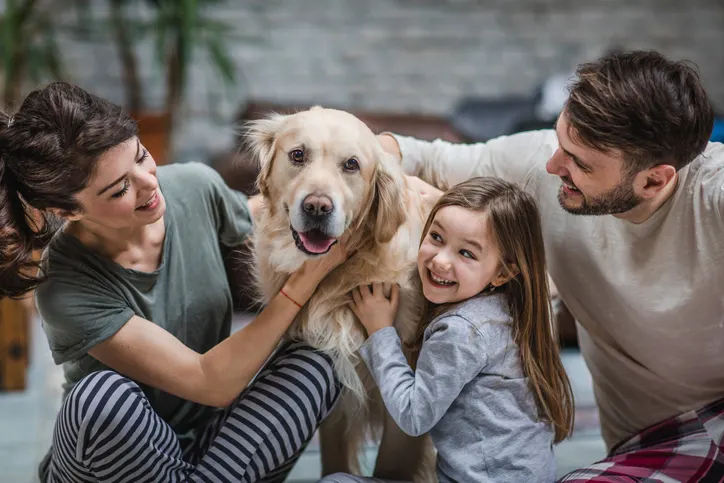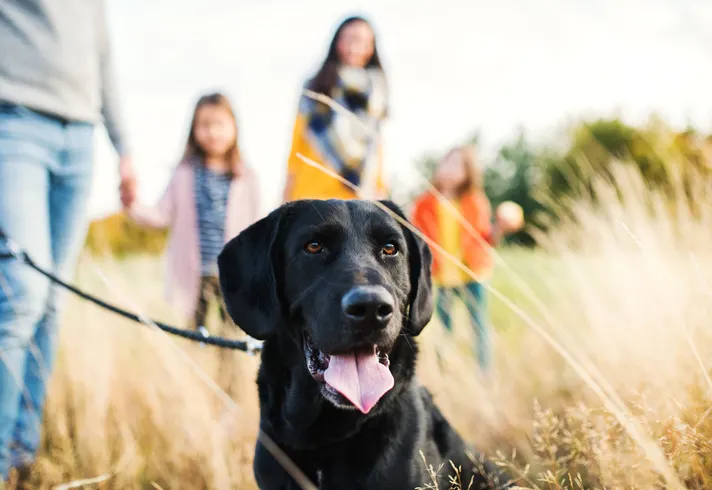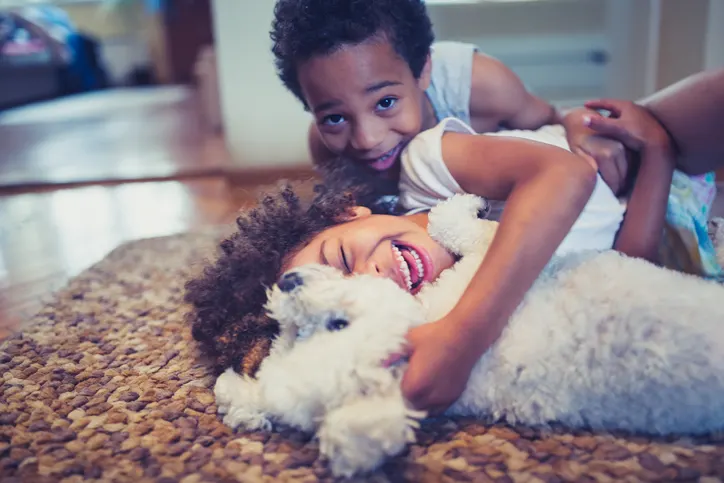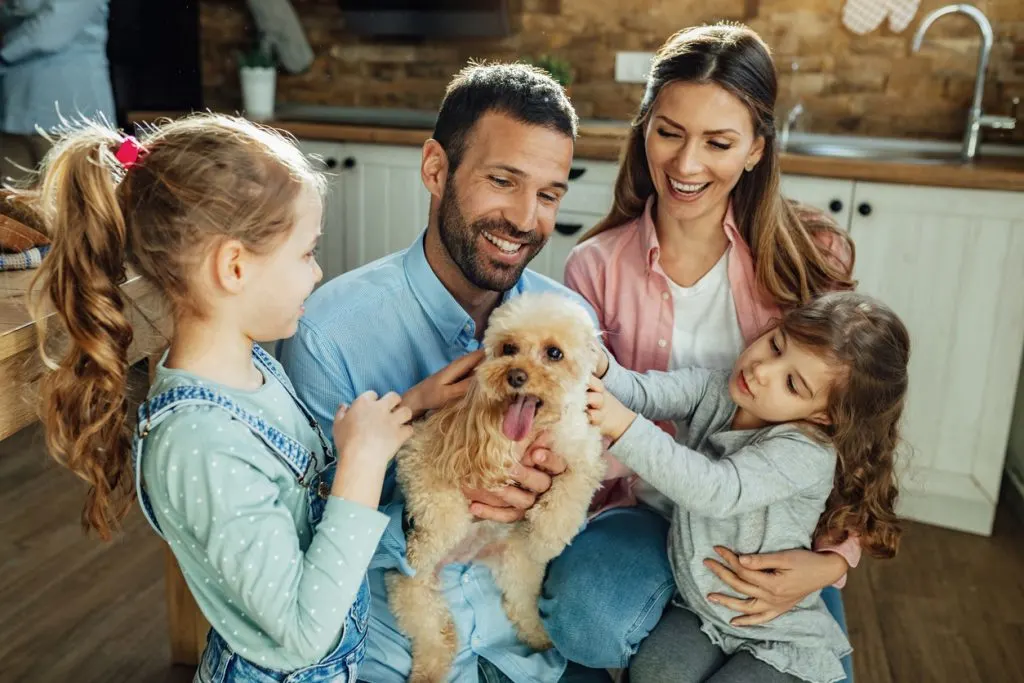If you’re thinking about the type of dog you want to get, then you should already know what it takes to be a responsible dog owner, as well as what you can do to prepare your home for them. Once you have that decided, it’s time to think about how you figure out which breed of dogs are best suited to your lifestyle.
What Kind Of Dog Is Best Suited To You?

Here, we’re going to look at a range of factors that you should consider when making your mind up.
Size
First of all, take a look around your home and ask yourself how much room you really have for the dog. If you have an apartment, most medium, and large-sized dogs aren’t going to acclimate well because they typically need some yard space.
You also need to consider whether the dog has room to comfortably get around, and lie down, with a reasonably sized bed, places to eat, spots to sit, and so on. You don’t want a big dog to feel cooped up in a smaller home.
Of course, if you have room for a kennel outside or you can dog-proof an outbuilding to make it safe for them, then that can still work perfectly well. Keep the size of the dog in mind.
Family life
The first thing that you need to think about is whether or not the breed on your mind is a great mix for you and your family. There are a lot of benefits of growing up with pets and there is no breed of dog that can’t get along with kids, but there are breeds of dogs with temperaments that are better suited to it.
For instance, poodles, Irish setters, and golden retrievers are great with children. Learning more about a Whoodle breed here at https://mywhoodle.com/ might just have you make the decision that they are the right breed for families! Meanwhile, independent dog breeds like Malamutes and Akitas may be better suited for those of you living alone since they don’t need the attention of a whole family.
Family member needs
Members of your family might also have needs and health considerations that you need to keep in mind when it comes to choosing the right dog. For instance, small children and small dogs can be a bad match, as they may be inclined to see the dog as a toy to play with, which can lead to dangerous situations.
Otherwise, if you have any family members who are allergic, you have to think about choosing dogs that don’t leave as much dander. There is no such thing as a truly hypoallergenic dog, but dogs like Shih Tzus do typically not produce as much as other dogs and don’t shed, so they can be better if someone has a light allergy to dogs.
Compatibility with other animals
Do you have other animals in the home? Not all pets are going to get along well together Of course, this comes down to both pets, as well as how well you have socialized them.
However, when it comes to finding a dog that will get along with other animals in the home, providing you know your pre-existing pets can behave as well, then there are some breeds that are more immediately ‘personable.
Most dogs can be trained to get along well with just about anyone, retrievers (especially golden and labrador), beagles, pugs, poodles, and the like are known to have good temperaments for other pets. So, you don’t need to worry that your cat and dog are going to get on like… well, cats and dogs.

Noise
For most people who own dogs, barking is going to become a natural part of life. Now, that’s not to say that excessive barking should be accepted and permitted. Even noisy little yappers can be trained to be more restrained with their barking, as impossible as that may seem.
However, if you live in a place that wouldn’t tolerate much noise, or you’re a night owl who might sleep throughout the day, you might look for dogs that don’t bark much at all.
Thankfully, there are a few breeds that are just like that, with the Basenji being the closest you will get to a silent dog, but Shar Peis, greyhounds, and bulldogs are also known for barking the least.
Exercise
You need to think about not just your own needs, but the needs of the dog, as well. The exercise needs of a dog are sometimes, but not always, related to the size of the dogs. Larger dogs typically need at least some yard space to run around in.
But otherwise, you should get to know the exercise dogs of specific breeds, as they differ a lot. Playful little Chocolate Lab puppies tend to have a lot of energy to burn and they stay that way for a long time.
Meanwhile, breeds like the Basset Hound tend not to need a lot of exercise. However, every dog needs to be walked at least once a day, or walked for at least 30 minutes. There are no dogs for those who don’t want to exercise at all.

Training needs
Another need for dogs is some discipline and structure. All dogs need at least a little training to make sure that they listen to your authority. All dogs also need to be socialized to some degree to make sure that they’re not going to behave aggressively or otherwise negatively to strangers without good cause.
However, there are dogs that need more training and benefit from it a lot more than others. There are some that are easy to train like the Border Collie dog or the German Shepherd, for instance.
If you’re planning on getting something like a bulldog, then you had better be prepared to spend a lot more time training them than usual.
Health issues
Another need that you have to take seriously is the health issues that certain breeds of dogs are most prone to. There’s no guarantee that a dog is going to develop the conditions they are most susceptible to, but the added risk is worth taking to account because it might mean more trips to the vet, more grooming, more exercise, and generally more careful management of their health.
That doesn’t mean that these dogs are any less worthy of your care, simply that you need to be ready for the extra work that goes into them. This goes double for if you plan on adopting dogs since many of them have trouble in their pasts that might include some health issues.
The costs
How much are you willing to pay for your dog? It’s worth thinking about because it goes well beyond the moment that you buy them. Sure, you do need to consider how expensive it might be to buy the dog. However, depending on a range of factors above, you also have to consider the costs of owning them.
Bigger dogs require bigger supplies, typically including more food, as well. If they are more prone to health issues, then you might find that your average vet bills annually are a bit bigger than most, as well. You need to be realistic and determine whether or not it is healthy for you to set aside the money that your dog will require.
Remember that even though different breeds of dogs do have certain characteristics that they are more likely to manifest, every dog is an individual. Yours will have their own challenges and quirks, you have to be open to living with and adjusting to all of them to ensure you’re really ready for a dog in your life.

Jessi is the creative mind behind The Coffee Mom, a popular blog that combines parenting advice, travel tips, and a love for all things Disney. As a trusted Disney influencer and passionate storyteller, Jessi’s authentic insights and relatable content resonate with readers worldwide.

